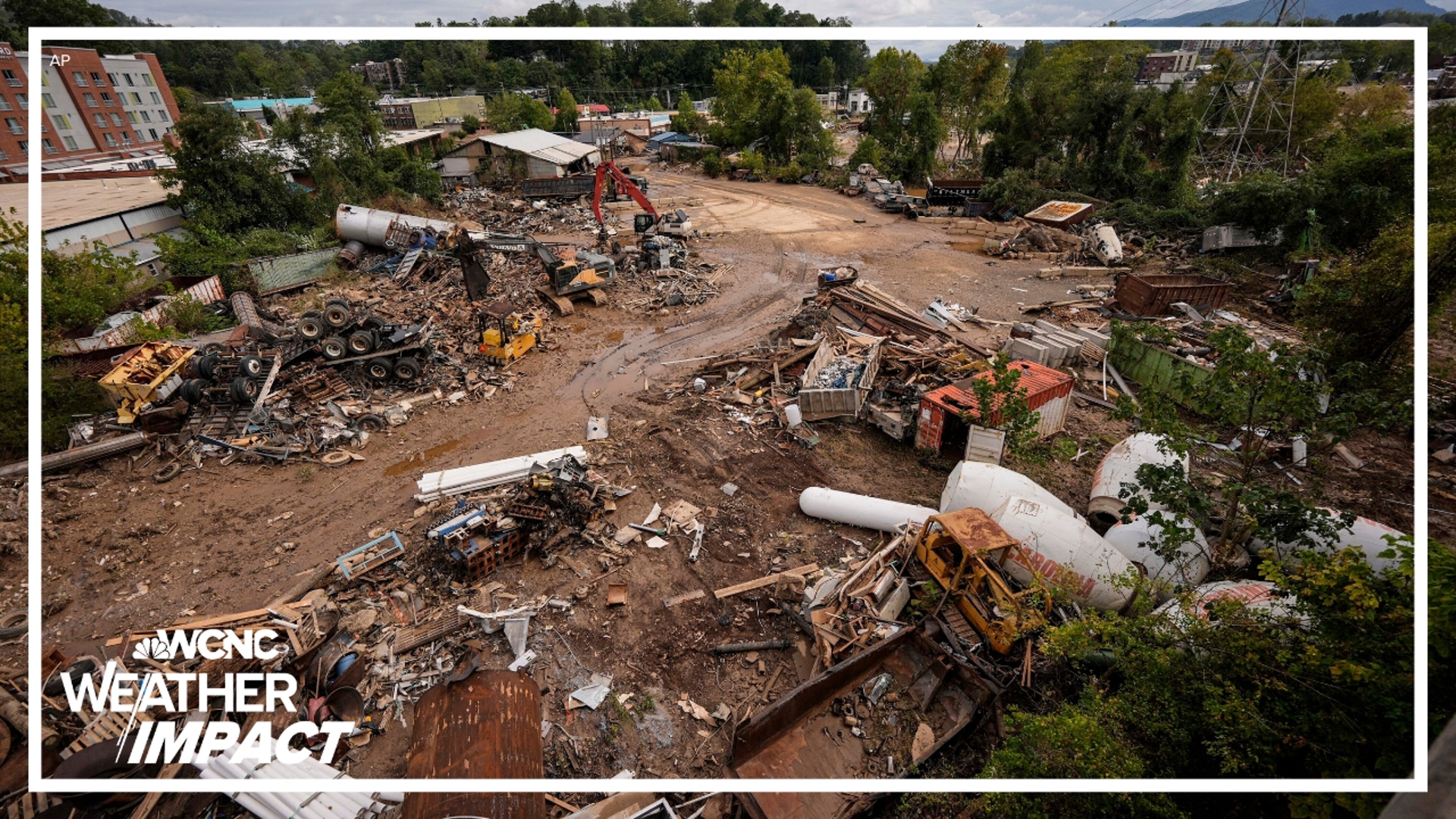CHARLOTTE, N.C. — WCNC Weather Impact Chief Meteorologist Brad Panovich broke down the destruction North Carolina has seen since Helene hit late Thursday and early Friday morning and explained why it was such a significant weather event for the mountains.
While Charlotte experienced power outages, downed trees and some fatalities, western North Carolina got hit the hardest. Panovich called the situation there "dire."
"That's where things are much more dire," Panovich said. "And the scary part is there're some communities that are really remote that we haven't heard anything about yet. And that's not a good thing because we just don't know."
Communication has been really poor in that area, and getting supplies in and out of there has been difficult, too.
"The only way I can describe what's happening in the North Carolina mountains is they basically have become like islands," Panovich explained. "They are isolated communities on ridgetops and valleys that are just cut off from the rest of the world right now."
Panovich said it became evident to him on Tuesday, Sept. 24, that Hurricane Helene was going to significantly impact to western North Carolina because of the predecessor rain event the area had.
"For folks that don't know what that is, it's a rain event that happens 36 hours, 24 hours ahead of a tropical storm," Panovich explained. "And when that started occurring Tuesday, we knew we were gonna have problems because we had anywhere from 6 to 12 inches of rain in the mountains even before Helene got here."
Panovich shared that predecessor rain event is what laid the groundwork for Helene to push all the floodwaters over the top.
"There was no room for this water in the mountains, so we really started ramping up that this was gonna be an extreme or catastrophic event," Panovich shared. "And even though we were ramping it up like that, it was still hard to visualize or for people to imagine that it could be that bad."
The small shift Helene did to the east also increased the wind risk, Panovich said.
"We knew the flood risk was gonna be a problem the entire time, but when the wind risk started ramping up, that meant we were gonna get a lot more trees down, a lot more power outages, and that made the flood risk even more dire because it was hard to get the message out once the power started going out.
Western North Carolina was on the bad, or "dirty" side of Helene, which means people in that area are most likely to see storm surge, extreme wind and heavier rain bands that can cause flooding — and even tornadoes.
"And then, you throw in just the topography of western North Carolina [where] pretty much all of the ridgetops on the Blue Ridge basically are perpendicular to that southeast wind, which created orographic lift and squeezed out every ounce of moisture out of the system," Panovich outlined. "So the amount of rain in some of these locations, we had some isolated reports of 30 to 35 inches of rain and some of the ridge tops had wind gusts to 100 mph."
Panovich also believes embedded tornadoes happened when Helene was at its strongest in the region.
"We got a lot of reports of enhanced wind damage in parts of the mountains and foothills that there likely will be tornado damage at some point, if we ever get there to do damage surveys," Panovich said. "It really was, unfortunately, the perfect storm of destruction here in the Carolinas, and everything just came together at once and, it is devastating."
Panovich compared the destruction to the great flood in 1916, calling Helene "a generational defining moment" for many residents of North Carolina.
For those who want to help, WCNC Charlotte has partnered with the American Red Cross to help gather donations to go to efforts that will help people impacted by Helene and with the nonprofit Operation Airdrop to get much-needed supplies to the mountain counties. Here's how you can help people impacted by Helene.
Contact Brad Panovich at bpanovich@wcnc.com or follow him on Facebook, X and Instagram.

